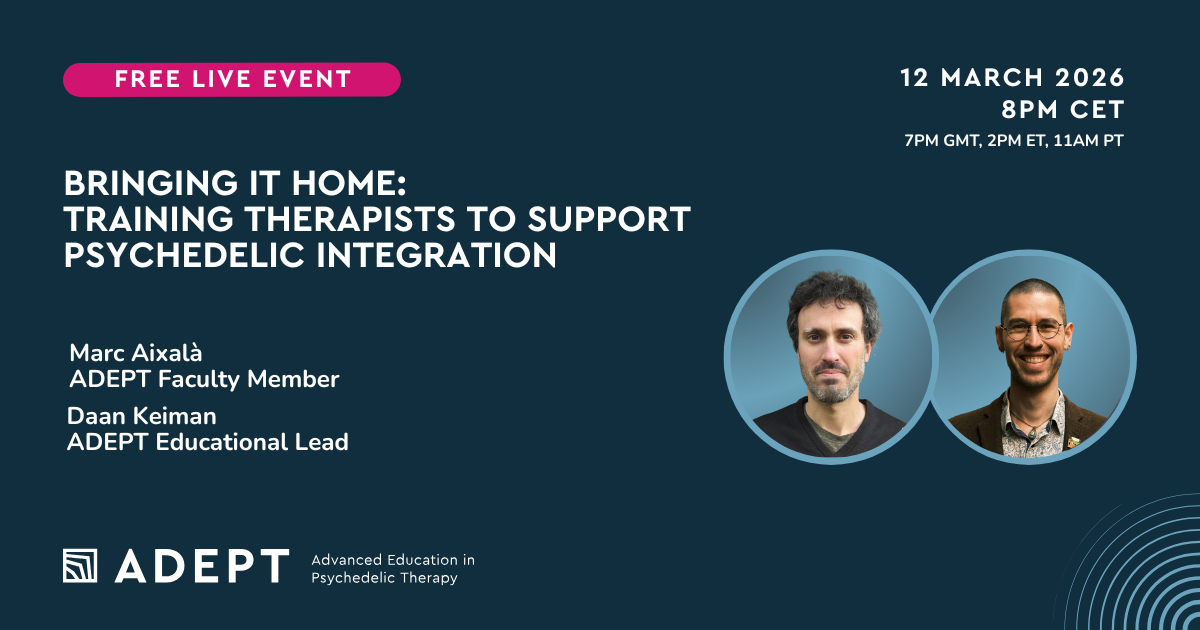Abstract
BACKGROUND:
Posttraumatic stress disorder is a prevalent mental health condition with substantial impact on daily functioning that lacks sufficient treatment options. Here we evaluate six phase 2 trials in a pooled analysis to determine the study design for phase 3 trials of MDMA-assisted psychotherapy for PTSD.
METHODS:
Six randomized, double-blind, controlled clinical trials at five study sites were conducted from April 2004 to February 2017. Active doses of MDMA (75-125 mg, n = 72) or placebo/control doses (0-40 mg, n = 31) were administered to individuals with PTSD during manualized psychotherapy sessions in two or three 8-h sessions spaced a month apart. Three non-drug 90-min therapy sessions preceded the first MDMA exposure, and three to four followed each experimental session.
RESULTS:
After two blinded experimental sessions, the active group had significantly greater reductions in CAPS-IV total scores from baseline than the control group [MMRM estimated mean difference (SE) between groups - 22.0 (5.17), P < 0.001]. The between-group Cohen’s d effect size was 0.8, indicating a large treatment effect. After two experimental sessions, more participants in the active group (54.2%) did not meet CAPS-IV PTSD diagnostic criteria than the control group (22.6%). Depression symptom improvement on the BDI-II was greatest for the active group compared to the control group, although only trended towards significant group differences [MMRM, estimated mean difference (SE) between groups - 6.0 (3.03), P = 0.053]. All doses of MDMA were well tolerated, with some expected reactions occurring at greater frequency for the active MDMA group during experimental sessions and the 7 days following.
CONCLUSIONS:
MDMA-assisted psychotherapy was efficacious and well tolerated in a large sample of adults with PTSD. These studies supported expansion into phase 3 trials and led to FDA granting Breakthrough Therapy designation for this promising treatment.
Mithoefer, M. C., Feduccia, A. A., Jerome, L., Mithoefer, A., Wagner, M., Walsh, Z., … & Doblin, R. (2019). MDMA-assisted psychotherapy for treatment of PTSD: study design and rationale for phase 3 trials based on pooled analysis of six phase 2 randomized controlled trials. Psychopharmacology, 1-11., https://doi.org/10.1007/s00213-019-05249-5
Link to full text
Posttraumatic stress disorder is a prevalent mental health condition with substantial impact on daily functioning that lacks sufficient treatment options. Here we evaluate six phase 2 trials in a pooled analysis to determine the study design for phase 3 trials of MDMA-assisted psychotherapy for PTSD.
METHODS:
Six randomized, double-blind, controlled clinical trials at five study sites were conducted from April 2004 to February 2017. Active doses of MDMA (75-125 mg, n = 72) or placebo/control doses (0-40 mg, n = 31) were administered to individuals with PTSD during manualized psychotherapy sessions in two or three 8-h sessions spaced a month apart. Three non-drug 90-min therapy sessions preceded the first MDMA exposure, and three to four followed each experimental session.
RESULTS:
After two blinded experimental sessions, the active group had significantly greater reductions in CAPS-IV total scores from baseline than the control group [MMRM estimated mean difference (SE) between groups - 22.0 (5.17), P < 0.001]. The between-group Cohen’s d effect size was 0.8, indicating a large treatment effect. After two experimental sessions, more participants in the active group (54.2%) did not meet CAPS-IV PTSD diagnostic criteria than the control group (22.6%). Depression symptom improvement on the BDI-II was greatest for the active group compared to the control group, although only trended towards significant group differences [MMRM, estimated mean difference (SE) between groups - 6.0 (3.03), P = 0.053]. All doses of MDMA were well tolerated, with some expected reactions occurring at greater frequency for the active MDMA group during experimental sessions and the 7 days following.
CONCLUSIONS:
MDMA-assisted psychotherapy was efficacious and well tolerated in a large sample of adults with PTSD. These studies supported expansion into phase 3 trials and led to FDA granting Breakthrough Therapy designation for this promising treatment.
Mithoefer, M. C., Feduccia, A. A., Jerome, L., Mithoefer, A., Wagner, M., Walsh, Z., … & Doblin, R. (2019). MDMA-assisted psychotherapy for treatment of PTSD: study design and rationale for phase 3 trials based on pooled analysis of six phase 2 randomized controlled trials. Psychopharmacology, 1-11., https://doi.org/10.1007/s00213-019-05249-5
Link to full text













